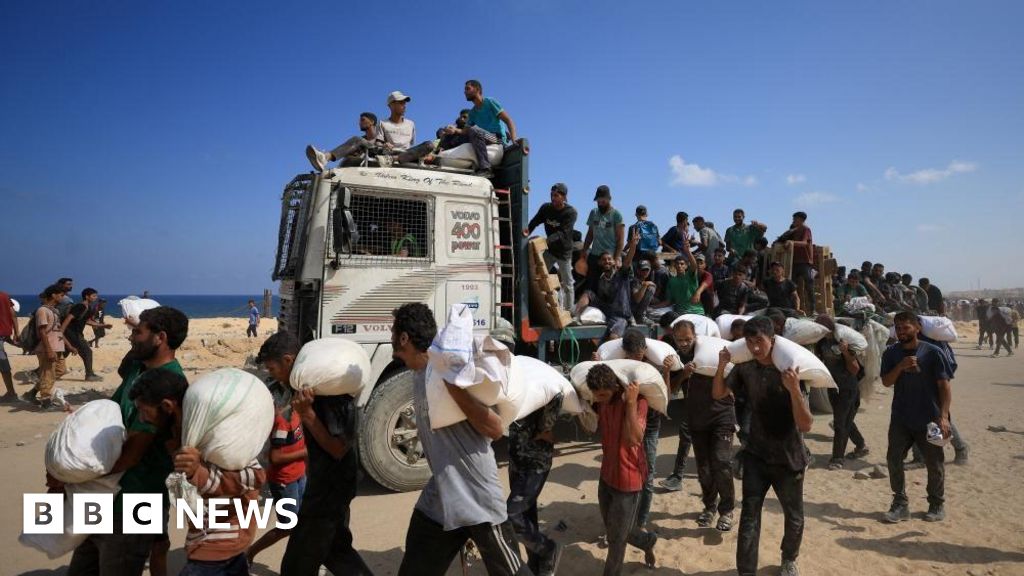Conflict Escalates in Gaza

Introduction
The conflict in Gaza continues to escalate as the United Nations reports that Israeli troops have hit facilities and raided a guesthouse in the area. This comes as Israel's military expands ground operations in central Gaza, resulting in even more displaced civilians and worsening the already dire hunger crisis.
Key Details
The recent attacks have caused widespread destruction and displacement, with many innocent civilians forced to flee their homes. The U.N. has also reported that the ongoing violence has severely impacted access to food, leaving many people in Gaza struggling to find enough to eat. In addition, the Israeli military's use of heavy weaponry in densely populated areas has resulted in a high number of civilian casualties.
Impact
The ongoing conflict in Gaza has had a devastating impact on the lives of innocent civilians, especially those who are already facing severe hunger. The U.N. has called for an immediate ceasefire to address the humanitarian crisis and ensure the safety of civilians. The international community must take swift action to bring an end to the violence and provide aid and support to those affected by the conflict.
About the Organizations Mentioned
United Nations
The United Nations (UN) is a pivotal international organization established in 1945, following the devastation of World War II, with the primary goal of maintaining global peace and security, fostering international cooperation, and promoting social progress. The UN Charter, signed by 51 founding member states, including the United States, the United Kingdom, China, and the Soviet Union, laid the foundation for this ambitious endeavor[1][3]. ## History and Structure The UN was born out of the failures of its predecessor, the League of Nations, which failed to prevent World War II. Key planning meetings, such as the Dumbarton Oaks Conference in 1944, defined the UN's structure, which includes the General Assembly, the Security Council, the Economic and Social Council, the Trusteeship Council, the International Court of Justice, and the Secretariat[1][6]. The Security Council, with five permanent members (the United States, China, France, Russia, and the United Kingdom), holds significant influence due to its veto power[2]. ## Key Achievements Over the years, the UN has played a crucial role in conflict resolution, human rights advocacy, and sustainable development. Notable achievements include the establishment of the Universal Declaration of Human Rights in 1948 and the implementation of numerous peacekeeping missions worldwide[3][4]. The UN has also been instrumental in addressing global challenges such as climate change and pandemics through its various programs and agencies. ## Current Status Today, the UN comprises 193 member states, with its most recent addition being South Sudan in 2011[5]. The organization continues to evolve, addressing emerging issues like digital governance and cybersecurity. Despite challenges, the UN remains a cornerstone of international diplomacy and cooperation. ## Notable Aspects The UN's work is not limited to politics; it also impacts business and technology through initiatives that promote sustainable development and digital inclusion. Its role in setting global standards and fostering international cooperation makes it a significant player in shaping the















